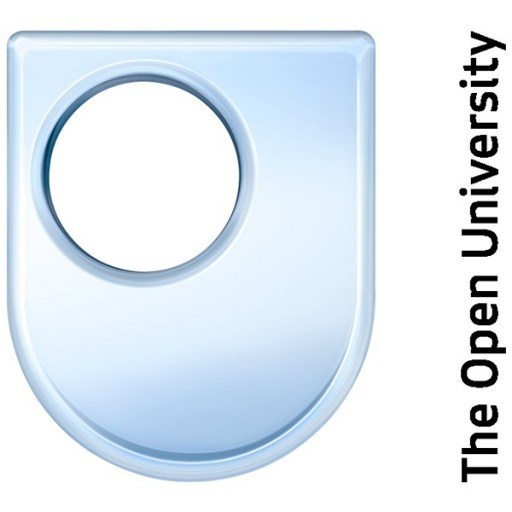Photos of university / #uniofbeds
The BSc (Hons) in Logistics and Supply Chain Management at the University of Bedfordshire is a comprehensive undergraduate programme designed to equip students with the essential knowledge and practical skills required to excel in the dynamic field of logistics and supply chain operations. This course provides a thorough understanding of the core concepts, principles, and contemporary issues that influence supply chain efficiency and effectiveness across various industries. Students will explore key areas such as procurement, transportation, inventory management, warehousing, and distribution, gaining insights into how these elements are integrated within global supply networks.
The programme emphasizes the development of critical thinking, problem-solving, and analytical skills through a combination of lectures, practical workshops, industry placements, and project work. It aims to prepare graduates for diverse career opportunities including supply chain analyst, logistics coordinator, procurement manager, and operations planner. The curriculum covers significant topics like supply chain strategy, information systems, sustainability in logistics, risk management, and entrepreneurship, ensuring students are well-versed in both theoretical frameworks and real-world applications.
Throughout their studies, students benefit from the university’s strong links with industry partners, which facilitate placements and networking opportunities, providing valuable practical experience and understanding of current industry practices. The course also incorporates the use of emerging technologies such as data analysis, automation, and e-commerce platforms, preparing students to meet the technological demands of modern supply chains.
The BSc (Hons) in Logistics and Supply Chain Management is ideal for individuals interested in the operational, technical, and strategic aspects of supply chains, offering a balanced blend of academic knowledge and vocational training. Graduates will leave the programme with the confidence and competence to contribute to supply chain improvements and innovation within a variety of sectors, including manufacturing, retail, logistics services, and public sector organizations. With a focus on sustainability and ethical business practices, the course also aims to promote responsible management in global supply networks, ensuring students are ready to meet the challenges of the 21st-century logistics landscape.
The Bachelor of Science (BSc) in Logistics and Supply Chain Management at the University of Bedfordshire offers students a comprehensive and practical education designed to prepare them for successful careers in the dynamic and vital field of logistics. This programme explores the fundamental principles of supply chain operations, including procurement, transportation, warehousing, inventory management, and distribution, equipping students with the knowledge and skills needed to optimise supply chain performance in various industries.
Throughout the course, students will engage with core topics such as logistics strategy, operations management, information systems for supply chains, and sustainable logistics practices. The curriculum is structured to blend theoretical understanding with real-world applications, featuring case studies, projects, and industry placements that enhance practical skills. Students will learn how to analyse complex logistical problems, develop innovative solutions, and apply modern software tools used in supply chain management.
The programme emphasizes the importance of global perspectives, encouraging students to consider international logistics challenges and developing cultural awareness in supply chain operations. A strong focus is placed on digital transformation, including the use of emerging technologies like RFID, IoT, and data analytics, to improve efficiency and competitiveness.
Students will also have opportunities to participate in industry visits, guest lectures from professionals, and networking events, fostering connections with key stakeholders in the logistics sector. This engagement ensures that graduates are well-prepared for employment in diverse environments such as manufacturing, retail, transportation, and government agencies.
The degree program includes practical assessments, group projects, and a final year dissertation, allowing students to investigate specific areas of interest within logistics and supply chain management. Additionally, the programme provides pathways for further academic study or professional development, including Chartered Institute of Logistics and Transport (CILT) accreditation.
Graduates of this programme will possess the analytical, organisational, and technological skills necessary to manage complex supply chains effectively. They will be equipped to contribute to the success of businesses by improving operational efficiency, reducing costs, and implementing sustainable logistics solutions. Overall, the BSc in Logistics and Supply Chain Management from the University of Bedfordshire prepares students for a rewarding career in one of the most vital sectors of the global economy.
Entry requirements typically include a relevant secondary education qualification such as A-levels or equivalent qualifications. Applicants may also need to demonstrate a strong interest in logistics, supply chain management, or related areas. Prior experience or knowledge in business studies, economics, or mathematics could be advantageous but is not always mandatory. International students are often required to meet specific English language proficiency standards, such as IELTS or equivalent scores, to ensure their ability to engage with the course material effectively. The University of Bedfordshire values diverse backgrounds and welcomes applications from mature students and those with work experience in relevant fields, which can sometimes be considered as part of the entry criteria.
For direct entry into the undergraduate program, applicants should typically have achieved a minimum number of UCAS points, often around 104-120 points, or possess relevant vocational qualifications such as BTEC Level 3 Extended Diploma with suitable grades. For international students, qualifications like the International Baccalaureate, Level 3 Diplomas, or equivalent are accepted and are assessed on a case-by-case basis.
Applicants are encouraged to submit a personal statement outlining their interest in logistics and supply chain management, their career aspirations, and any relevant work experience or extracurricular activities. References from previous educators or employers may also be required to support the application. For postgraduate programs or advanced entry schemes, a relevant bachelor's degree or equivalent qualification is usually necessary, with a focus on disciplines related to business, management, or engineering.
The university may also consider mature applicants without formal qualifications if they demonstrate significant professional or life experience relevant to the field. Additionally, participation in assessment centers or interviews might be part of the selection process, depending on the applicant's background and the specific course requirements. Overall, the program seeks motivated individuals with a genuine interest in developing expertise in logistics, supply chain strategies, and operational management to prepare them for careers in global logistics and related industries.
The University of Bedfordshire offers a comprehensive Financial Studies component within its Logistics and Supply Chain Management program, designed to equip students with essential financial competencies relevant to the logistics sector. The program provides a detailed overview of financial principles, including budgeting, financial analysis, investment appraisal, and cost management, tailored specifically for the supply chain and logistics contexts. Students examine how financial decision-making impacts operational efficiency, profitability, and strategic planning within organizations. The coursework covers topics such as financial reporting, variance analysis, and financial risk management, enabling students to understand and interpret financial data crucial for effective supply chain management. The program emphasizes the development of numerical proficiency and analytical skills, preparing graduates for roles that require financial oversight and strategic planning in logistics operations. Additionally, students are introduced to modern financial tools and software used in the industry, enhancing their practical skills. The program is designed with a blend of theoretical knowledge and practical application, including case studies, project work, and industry placements, that reinforce financial competencies in real-world scenarios. Students also have access to academic resources such as financial databases and simulation tools to deepen their understanding. The university ensures that the financial curriculum stays current with industry trends and regulatory changes through continuous updates and input from industry experts. Furthermore, there is a strong emphasis on ethical financial practices, corporate governance, and sustainable financial management within the supply chain. The program prepares students to pursue careers in logistics finance, strategic procurement, supply chain analysis, and financial consultancy in logistics firms. The assessment of the Financial Studies module includes exams, coursework, presentations, and group projects to evaluate knowledge application and analytical skills. Overall, the financing studies component aims to provide students with a solid foundation in financial principles, critical thinking abilities, and practical skills necessary for success in the dynamic field of logistics and supply chain management.
Logistics and Supply Chain Management at the University of Bedfordshire is a comprehensive program designed to equip students with the essential knowledge and practical skills required to excel in the dynamic field of logistics, transportation, procurement, and supply chain operations. The course focuses on providing a strong foundation in the core principles of supply chain management, including planning, sourcing, manufacturing, delivery, and customer service. It emphasizes the development of strategic thinking, problem-solving abilities, and an understanding of global supply chain processes, which are critical in today's interconnected markets.
The program combines theoretical learning with practical application, often involving case studies, real-world projects, and opportunities for placements within the industry. Students learn about the latest digital tools, software, and technologies used in logistics, such as ERP systems, warehouse management systems, and data analytics tools, preparing them for the technological advancements shaping the sector. The curriculum covers key topics such as inventory management, transportation and distribution, procurement strategies, supply chain risk management, sustainability in logistics, and international trade regulations.
Students also develop essential soft skills, including communication, teamwork, problem-solving, and leadership, which are vital for career progression in logistics and supply chain roles. The program is designed to support both recent school leavers and mature students, offering flexible study options to accommodate different needs. Graduates of the program are well-prepared to pursue careers as logistics managers, supply chain analysts, procurement officers, operations managers, and consultants across various industries including manufacturing, retail, transportation, and government agencies.
The University of Bedfordshire maintains strong links with industry partners, which enhances the employability of its graduates through internships, industry projects, and networking events. The program also aligns with professional accreditation standards, which can support students' progression toward professional qualifications in logistics and supply chain management. Overall, the course aims to develop knowledgeable, skilled, and adaptable professionals capable of managing complex supply chains efficiently in a rapidly changing global environment.




